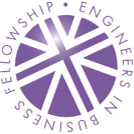Bright Ideas Challenge – 2021
Back to Competitions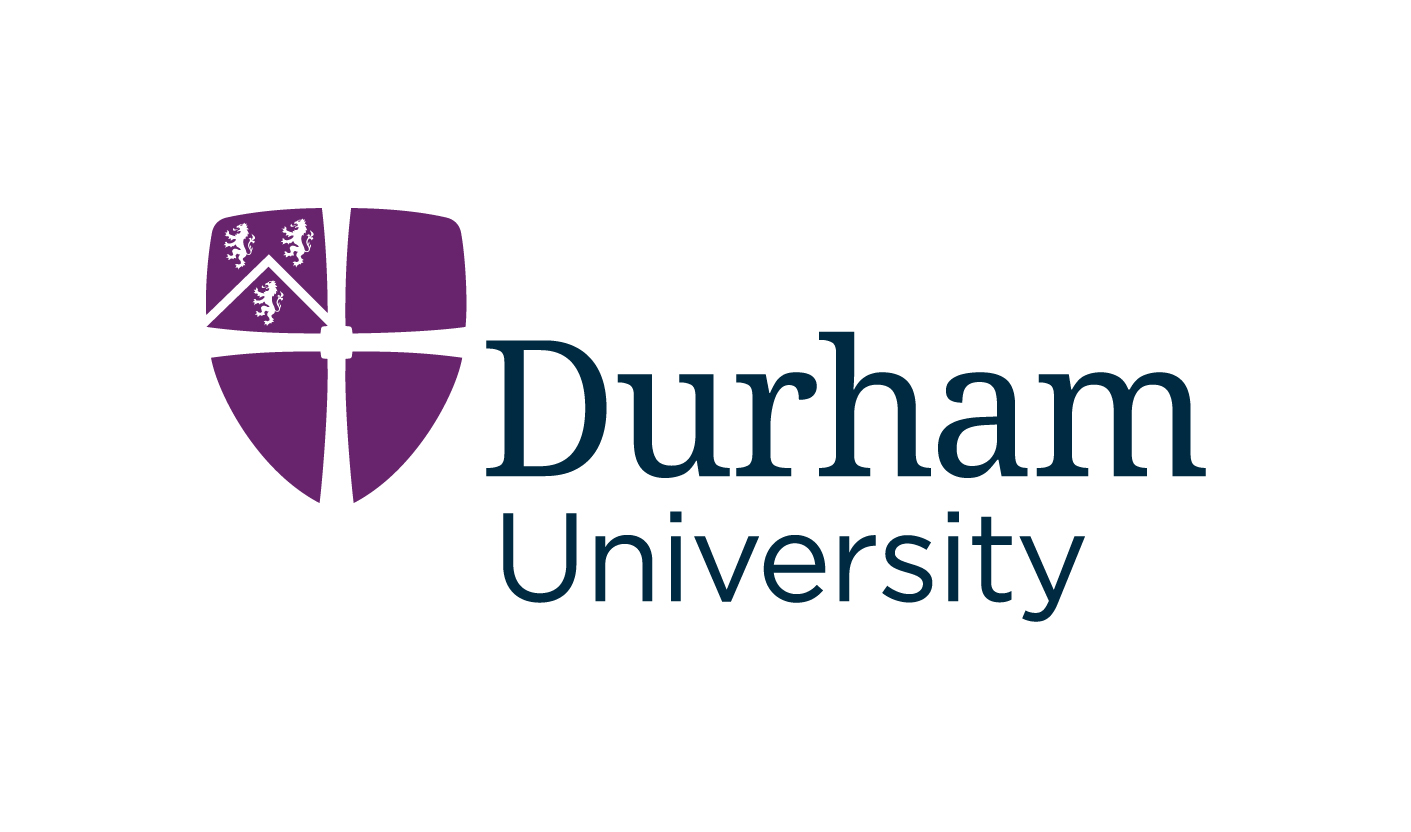 | This year Durham University launched its Bright Ideas Challenge with the support of an Engineers in Business Prize Fund. The Bright Ideas Challenge is an Elevator Pitch competition open to the university’s current Engineering, Computer Science or Bioscience students, or multi-disciplinary teams comprising students from these degree categories. Students were inspired to develop innovative solutions for real-world problems and were provided with online support and advice throughout the competition. The students pitched their innovations via two-minute-long videos for the chance to win the Emerald, Ruby or Topaz Engineers in Business prizes. |
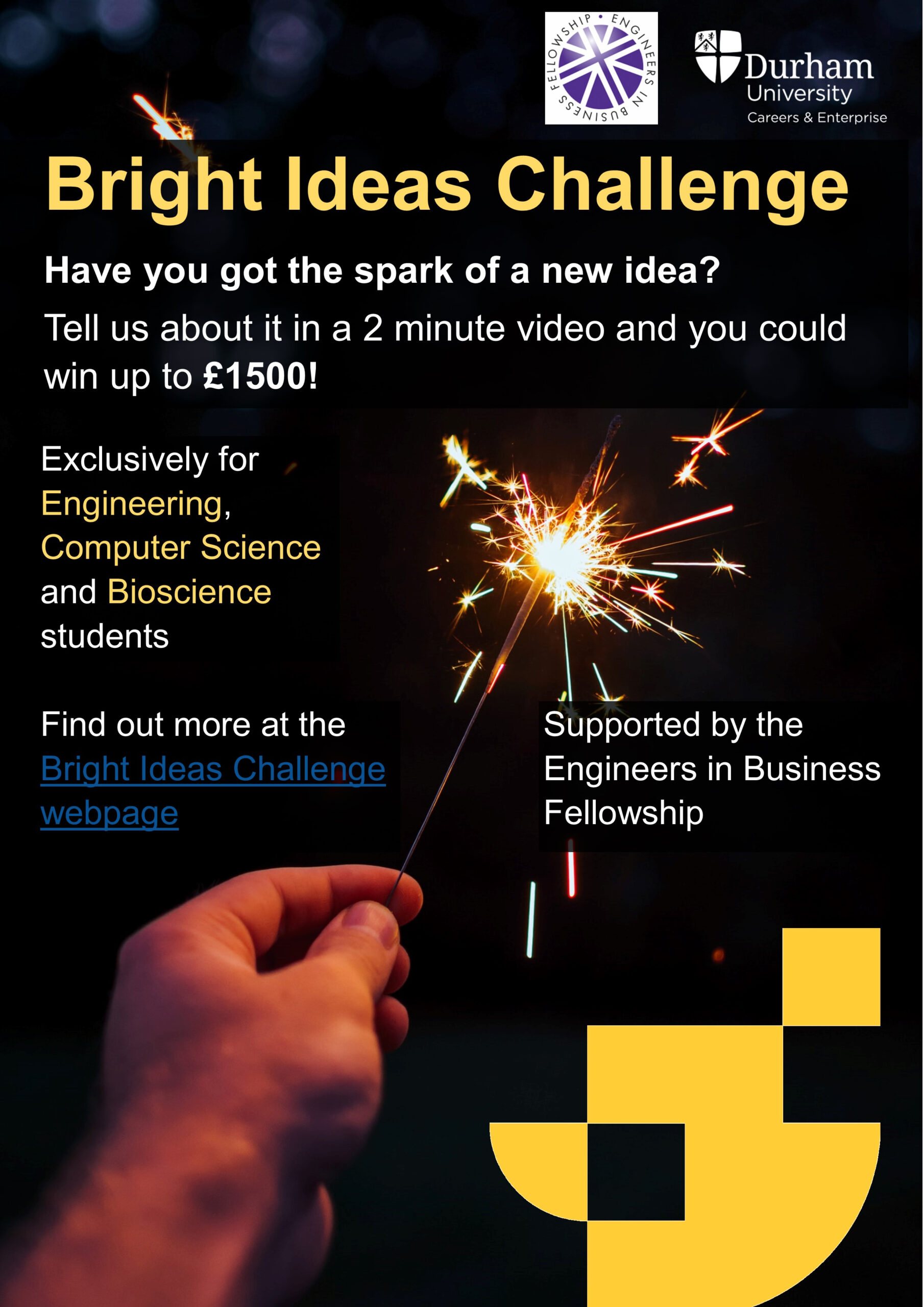
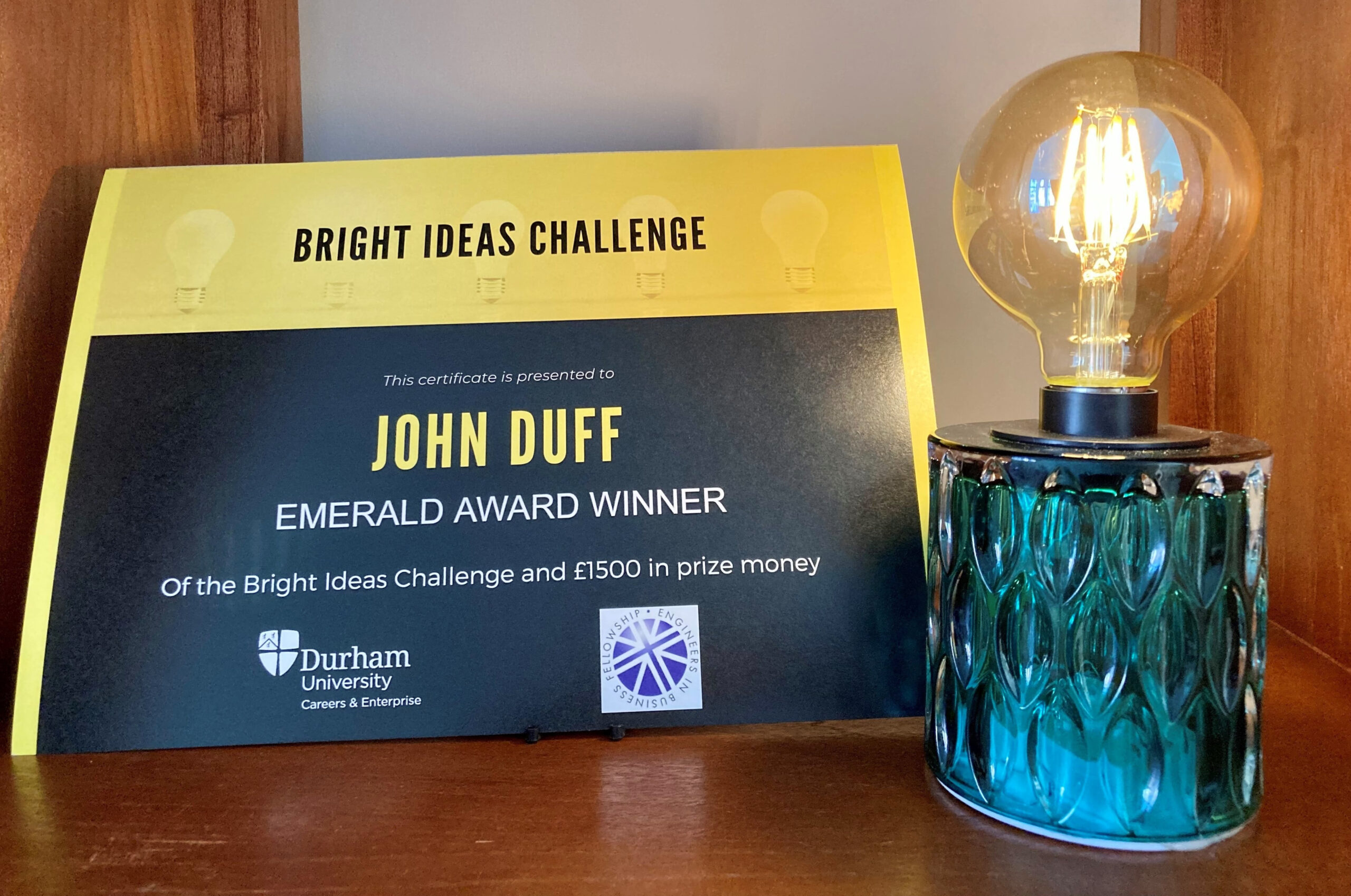
Emerald Winner
John Duff, MEng Mechanical Engineering (Durham University), £1,500 Engineers in Business Prize
In the UK 10 million people suffer from arthritis, with an ageing population this will increase. Arthritis restricts daily life, causing pain and disability. A product that can alleviate symptoms of arthritis would be life changing. The innovation is based on scientific research that reducing the humidity around arthritic joints reduces inflammation and associated symptoms. A garment similar to a knee protector would be developed, replacing padding with a drying agent to locally reduce humidity. A non-porous outer layer prevents moisture from the environment from entering. A porous layer between the drying agent and the knee protects the skin. Calcium chloride would be a suitable drying agent as it is safe, inexpensive and readily available.
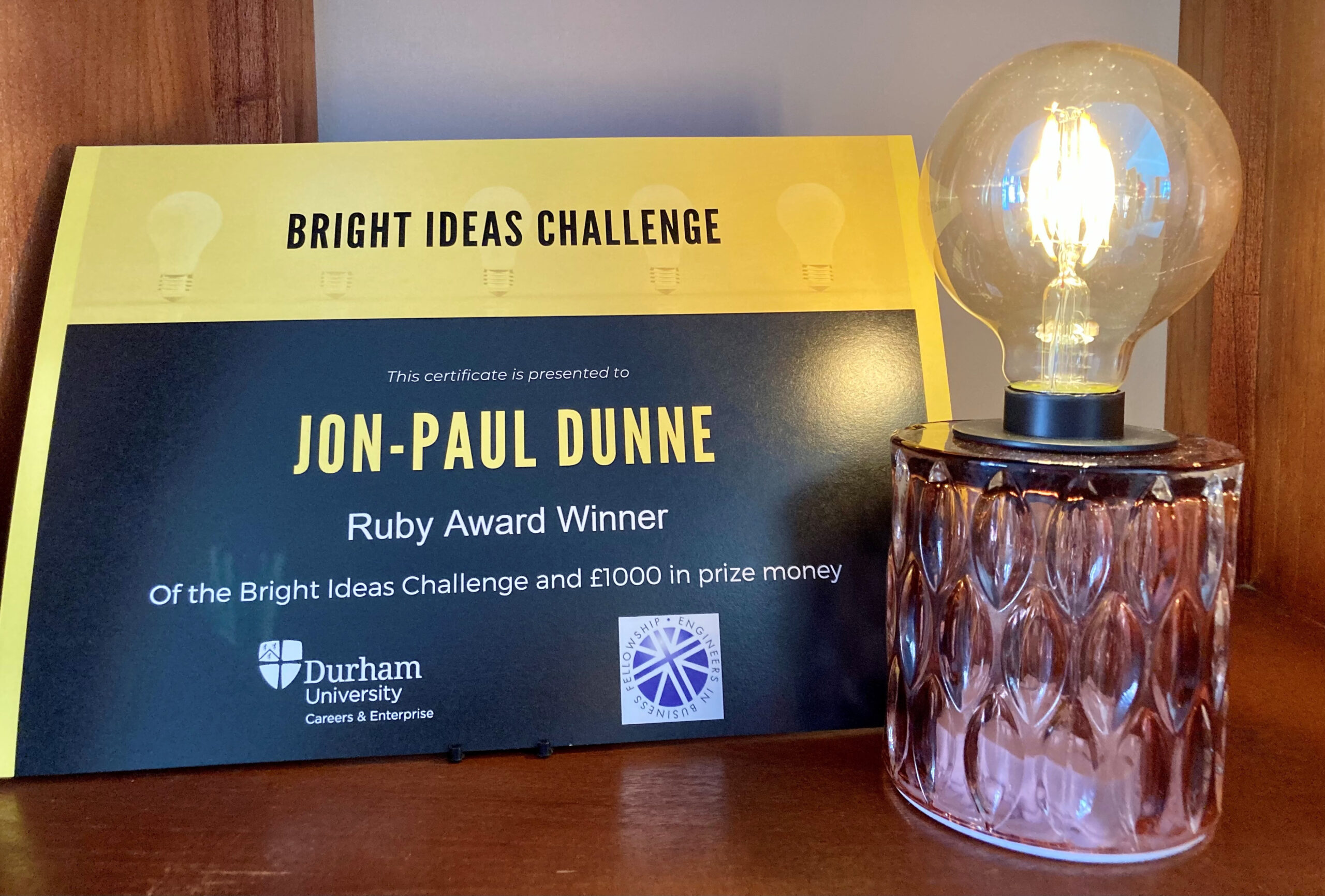
Ruby Winner
Jon-Paul Dunne , BSc Environmental Science (University of East Anglia); Bioscience Mres (Durham University) – £1,000 Engineers in Business Prize
Jon-Paul’s idea involves using microalgal and cyanobacterial cell products such as lipids and biomass as a means of reducing fuel and energy scarcity in rural, poverty-stricken areas by incorporating them into sustainable community models. This would involve combining regenerative and sustainable land management with bioremediation in photobioreactors to convert sewage into algal biomass. Fabrication laboratories would then be used to locally convert algal biomass into biofuels or organic electronics, additionally allowing for other manufacturing. These communities would therefore have increased access to sustainable resources alongside the ability to generate income and potentially self-replicate, helping us fight climate change.
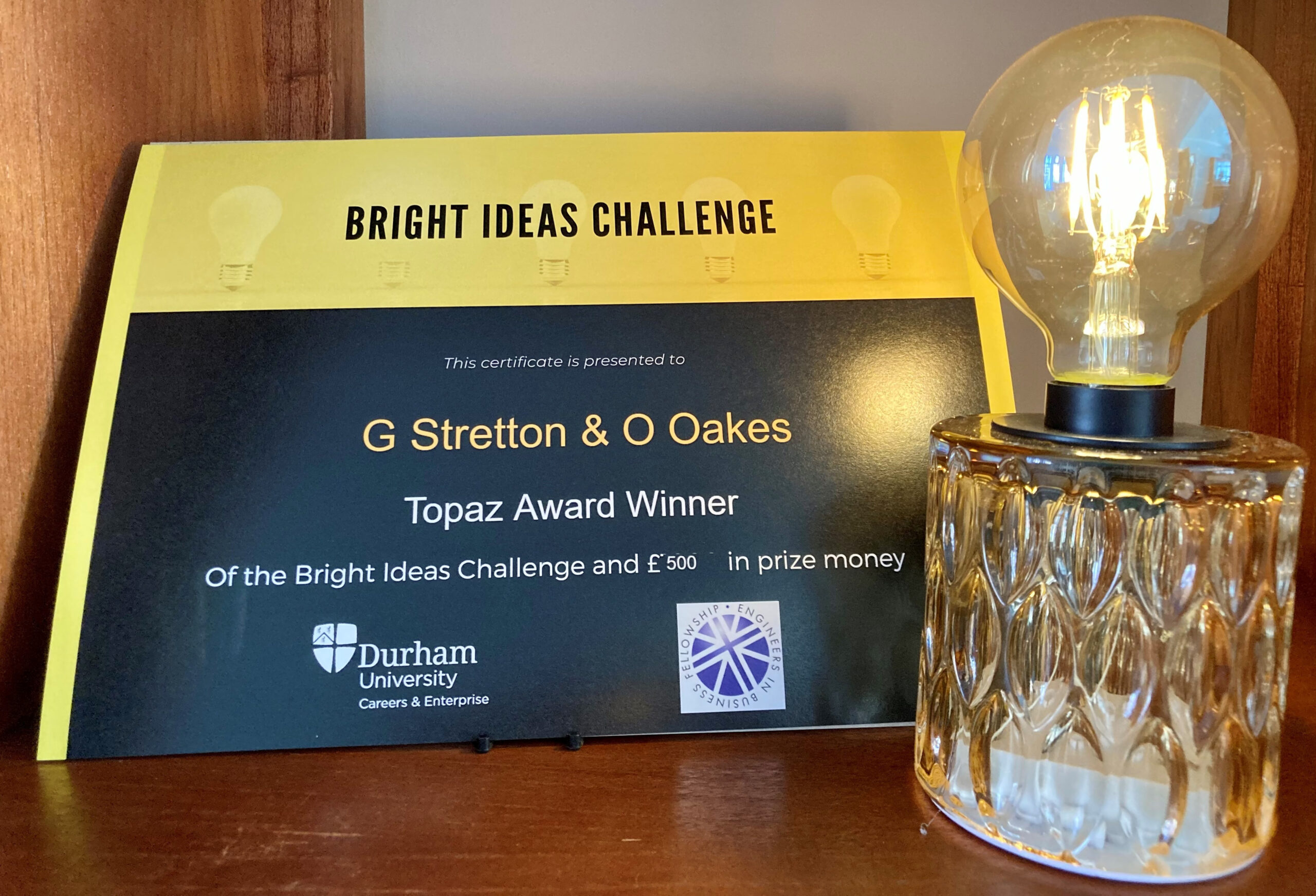
Topaz Winner
Greg Stretton , 4th Year Computer Science (Durham University) and Oliver Oakes, Mathematics (Leeds University) – £500 Engineers in Business Prize
The team’s first product, Polaris, lets the user sense magnetic fields, north, through vibration. Gaining a fixed sense of orientation in this way can improve sense of direction and aid memory formation in a passive, effortless way. However, objective benefits cannot compare to the subjective experience of expanding your perception to unlock new abilities. Aside from sensing magnetic fields, we plan to offer senses of heart rate and time in the future; we will demonstrate the brain’s extraordinary capacity for growth to the world.
Positive feedback
The Engineers in Business Competition prize funding and the backing of the charity helped Durham University’s Enterprise Team raise, not only the profile of the work we do with engineers but furthered our reach to the Engineering, Computing and Biosciences students, resulting in fantastic applications some of whom had not engaged with enterprise activity previously and of course three very worthy winners.
Paul Stafford, PGR Enterprise Manager, Durham University
